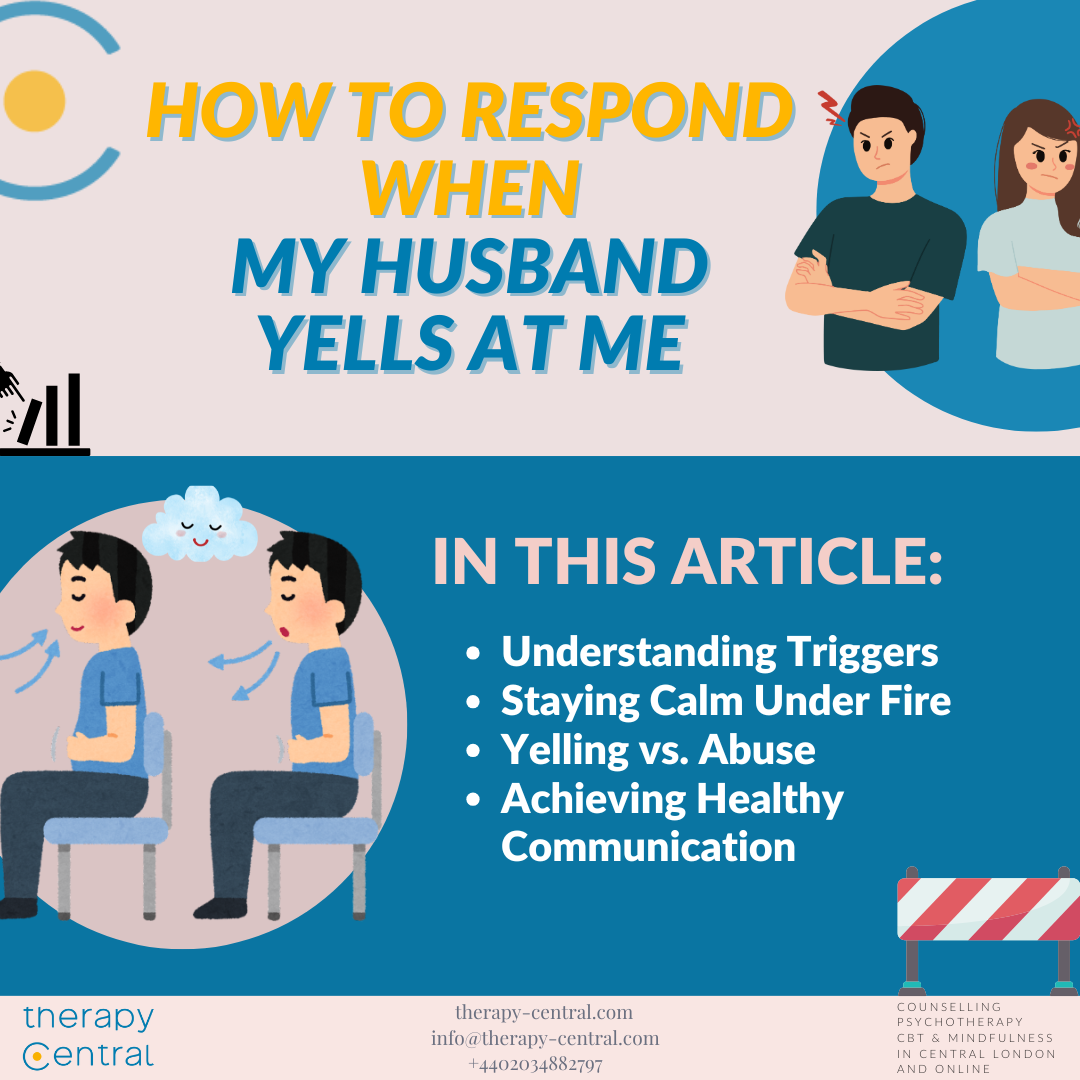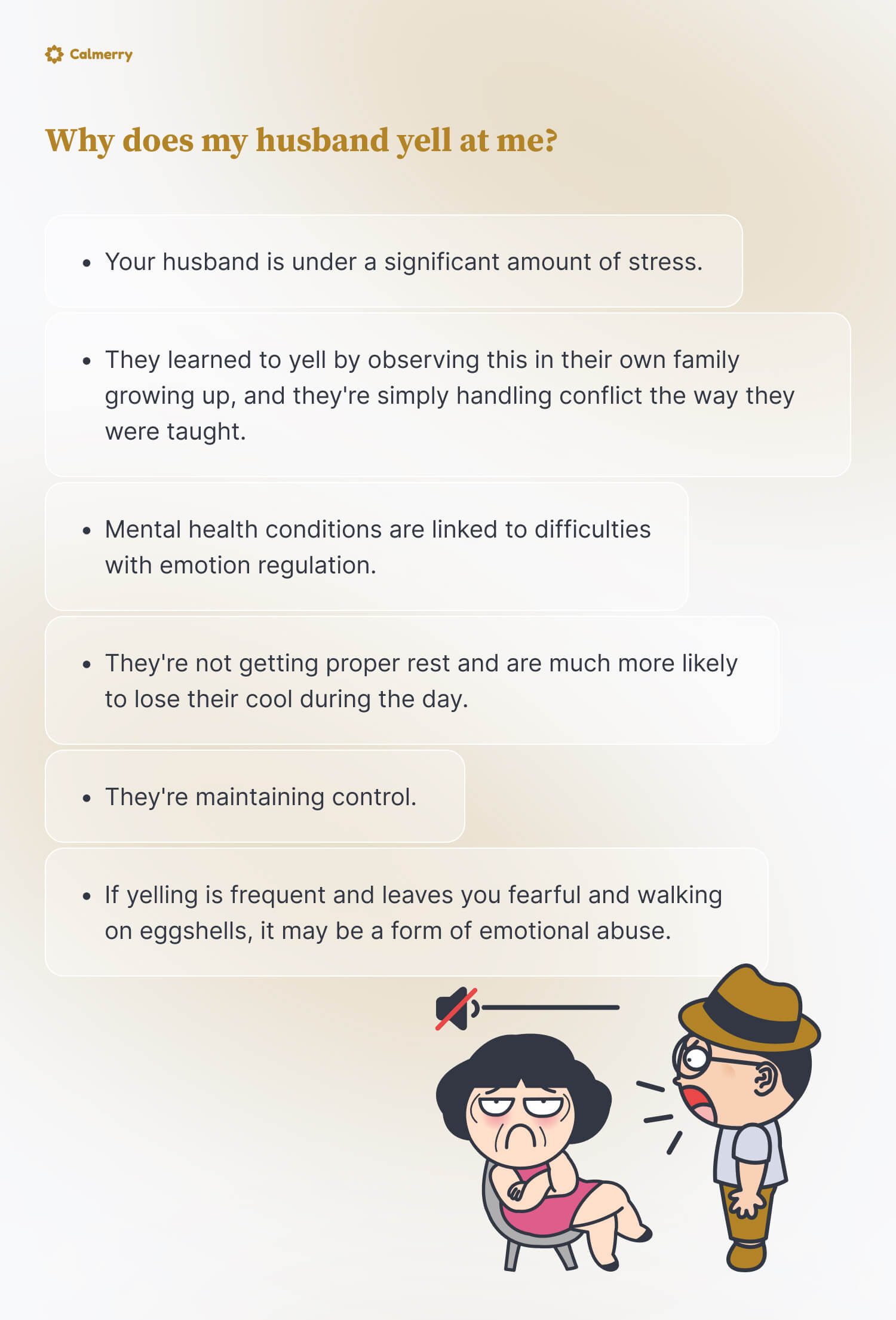Alright, let’s get into it. This isn’t an easy topic, but it’s real, and it happens. What do you do when your husband is yelling at you? I’ve been there, and it’s a punch to the gut, every single time. For a long while, I just didn’t know how to handle it.

My First Reactions – And Why They Didn’t Work
When it first started happening more often, I’d just freeze up. Like a deer in headlights. I’d feel my throat close up, and all the words I wanted to say would just vanish. Or, and I’m not proud of this, sometimes I’d get defensive and try to yell back. You can imagine how that went. It was like throwing gasoline on a fire. We’d both end up angrier, more hurt, and nothing, absolutely nothing, got solved. It just made things worse, a lot worse.
I remember thinking, “This can’t be it. This isn’t how I want to live.” I’d spend hours replaying the arguments in my head, trying to figure out what I could have said differently, or done differently. It was exhausting.
Figuring Out a New Approach
So, I had to take a step back. I realized my reactions weren’t helping me, or him, or our marriage. I had to try something new, even if it felt unnatural at first. It wasn’t about ‘winning’ the argument, because honestly, nobody wins when there’s yelling.
Here’s what I started to do:
- Choosing my moment: This was big. I stopped trying to address the yelling while he was yelling. Pointless. Instead, I waited until things were calm. Totally calm. Maybe the next day, or even a few hours later if the storm passed quickly.
- Using “I feel” statements: When I did talk to him, I really focused on saying things like, “When you yell, I feel scared,” or “I feel disrespected when voices are raised like that.” I tried really hard to keep blame out of it. It wasn’t about saying “You are bad for yelling,” but more “This is how your yelling impacts me.”
- Setting a boundary: This was the hardest part, but probably the most important. I started saying, very calmly, “I can’t continue this conversation if you’re yelling. I’m going to step away, and we can talk when you’re ready to speak calmly.” And then – and this is key – I actually did step away. I’d go to another room, or go for a short walk if I could.
- Not engaging: If he kept yelling as I was trying to disengage, I just wouldn’t take the bait. I’d repeat, “I’m not going to argue like this,” and remove myself. It felt weird, like I was being rude, but it was better than getting sucked into the vortex of anger.
What Happened Next
Let me tell you, it wasn’t magic. The first few times I tried to walk away, he got even angrier for a moment. He wasn’t used to it. But I stuck to it. Consistency was super important. He started to see that I wasn’t going to participate in a yelling match anymore.

Slowly, and I mean slowly, things began to shift. The yelling didn’t stop overnight, no way. But the episodes became less frequent. And when they did happen, they didn’t escalate as much because I wasn’t fueling the fire.
I also learned to look at what might be under the yelling. Was he stressed from work? Feeling unheard himself about something else? Sometimes, when things were calm, I’d gently try to ask about those things. It wasn’t an excuse for yelling, never, but understanding the root sometimes helped us both.
Where We Are Now
It’s still a journey, you know? We’re not perfect. But things are so much better. The yelling is rare now. And when it does happen, I have a plan, I know what to do. I don’t feel so helpless anymore. It was about me changing my reaction, my approach, and that, in turn, created space for him to change his actions.
It took a lot of patience, a lot of deep breaths, and a commitment to not fall back into old patterns. But it was worth it for me, for my peace of mind, and for our relationship. It’s about reclaiming your calm in the storm.










